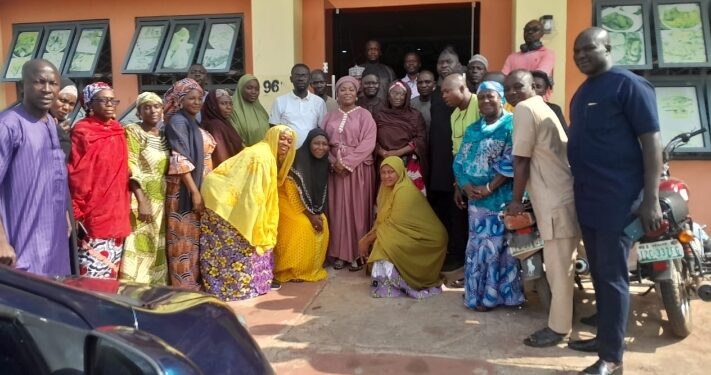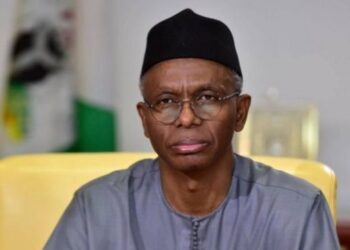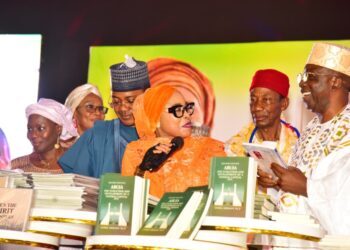Solomon Attah, Lafia
All things being equal, Nasarawa State will be enlisted among states to benefit from nutrition commodities, including the 5 million doses of Multiple Micro-Nutrient Supplements (MMS), recently received by the Federal Government of Nigeria.
Beatrice Orume, the Deputy Director Nutrition Department Federal Ministry of Health and Social Welfare, mentioned the inclusions of Nasarawa in the MMS distribution, at a 2-day training for nutrition commodity logistics managers, held in Lafia, the capital of Nasarawa State.
The training, which was organized by Nutrition International in collaboration with the Federal Ministry of Health and Social Welfare and Nasarawa State Government, brought stakeholders, including local government Logistic managers, Nutrition officers, and international partners, in the health sector to the round table training.
Orume said, the country has received 5 million doses of Multiple Micro-Nutrient Supplement (MMS) and Nasarawa State is among the first state to receive the commodity, hence the need to document and report commodity utilization.
Also, an Officer with the Federal Ministry of Health and Social Welfare, Adeoti Samuel, who took participants on the practical techniques for entering nutrition data, was optimistic that the country was going to get it right against flawless nutrition data collection for analysis.
He explained that the training was “to build a pool of nutrition logistics managers that will cascade training to facilities through the use of Nutrition Health Logistics Management information system (NHLMIS) as well as to collaborate with NPSCMP for visibility and accountability of nutrition commodities.”
According to Samuel, the NHLMIS will allow stakeholders to analyse essential data trends and support inventory management for decision-making processes.
Jonah Aboki, the State Secretary, Civil Society, Scaling Up Nutrition in Nigeria (CS-SUNN), appreciated the Federal Ministry of Health and Nutrition International and Nasarawa State Ministry of Health for organizing the training, which he said, would bridge the gap of a workable system documenting and tracking commodity utilization in the state.
He said, CS-SUNN is already collaborating with Vitamin Angels in terms of providing deworming tabs and Vitamin A for the State during MNCHW and pledged to support any nutrition intervention in the State.
Explaining the supply chain management circle in the state, the State LMCU Coordinator, Ezekiel Mai-dawa, briefed the participants on some thematic areas in logistics management to include, target beneficiaries of nutrition intervention for pregnant woman, under 5 Children, WCBA, and adolescents.
The State LMCU Coordinator mentioned vitamin A, RUTF, MMS/IFA, SP, ORS/ZINC micro-nutrient powder and albendazole, SQ-LNS, as some of the commodities used in nutrition space.
Mai-dawa urged the managers to take inventory of facility data, consumption data, service data, and estimated projection inventory management for storage and distribution, which are necessary quantification and procurement.
He, however, lamented how the state was unable to produce data for nutrition consumption, stressing that, “sadly up till now there is no nutrition consumption data available in the state.”
He called on LNOs across the 13 local governments to be ready to give data willingly for use and called for teamwork among tue LNOs.
Mrs Halima Yusuf, the State Director Nutrition and Dietetics Ministry of Health, appreciated the NI for deeming it necessary at this point to bring Nutrition Comodity logistic up to date as this is actually the first time any attempt has been made to include Nutrition commodities into the state LMC. She assured the state that the state will ensure compliance with the requirements of the logistics management system of the state
Our correspondent reports that the MMS is to enhance nutrition for children under 5 years, pregnant women, and to ensure they deliver healthy babies. The supplements also contain 13 to 15 vitamins and minerals.











